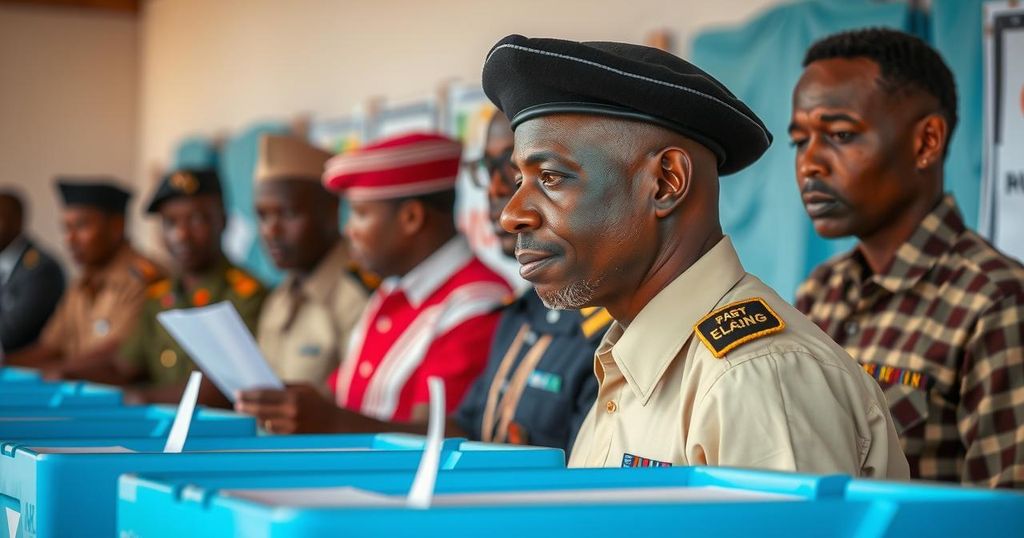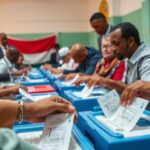Chad’s General Election: A Step Towards Democracy or a Symbol of Apathy?
Chad conducted a general election amid declining voter turnout, reported at 38%, as opposition groups called for a boycott. President Idriss Deby’s government aimed to portray the elections as a transition toward democracy. However, voter skepticism about the electoral process and claims of preordained results persist, coupled with allegations of ballot discrepancies.
Chad held a general election on Sunday, marking a purported transition away from three years of military rule. The government anticipated low voter turnout, estimated at approximately 38%, as opposition groups called for a boycott in response to claims of predetermined results. Notably, opposition leader Succes Masra asserted that the majority of voters heeded their call to abstain from voting, asserting, “They have all stayed at home following our call, that is, the overwhelming majority.”
Consequently, candidates aligned with President Mahamat Idriss Deby Itno, who ascended to power in 2021 following a military takeover, were favored in the elections. Despite opposition urging widespread abstention, President Deby attempted to encourage participation, referring to the election day as “a historic day”. Voter apathy was attributed to various factors, including adverse weather conditions, although criticism from constituents highlighted a deeper sense of disenfranchisement with the electoral process.
The presence of ballot discrepancies further exacerbated tensions, with the Democratic Party of the Chadian People alleging that over a thousand ballots went missing. Compounding these concerns, the elections proceeded amid ongoing threats from the jihadist group Boko Haram and allegations of Chadian interference in regional conflicts, particularly in Sudan. Observers noted this election as a critical juncture in Chad’s journey toward democracy, yet many citizens expressed skepticism about the integrity of the electoral process itself.
Additionally, residents affected by climate change voiced their concerns, as highlighted by community representative sheikh Djibrine Hassabakarim, reflecting the significant socio-economic challenges faced by the population. The Chadian government portrayed the elections as a means to facilitate a shift toward democratic governance, following the longstanding rule of President Idriss Deby.
Chad has experienced a tumultuous political landscape marked by a protracted military rule that began after the death of President Idriss Deby in April 2021. Following this military ascendance, President Mahamat Idriss Deby Itno was positioned to lead the nation amid promises of a transition towards democracy. The current general election is framed by the government as a pivotal step in this transition, yet deep-seated skepticism permeates the populace due to claims of impropriety within the electoral framework. Furthermore, the ongoing engagements with violent extremist groups and challenges posed by environmental concerns impede the social fabric of the nation, thereby impacting the electoral process and its credibility. The opposition’s boycott reflects a significant discontent toward the ruling government’s declarations, indicating a call for reform rather than mere electoral participation.
In conclusion, the recent general election in Chad illustrates the complex interplay between political aspirations and public sentiment amidst continued military influence. Despite governmental assertions touting the election as a step toward democracy, widespread opposition calls for boycott reflect deep-rooted skepticism regarding the electoral integrity. With notable voter apathy and allegations of missing ballots, the election raises critical questions about Chad’s democratic future in the wake of a military regime.
Original Source: www.communitynewspapergroup.com








Post Comment